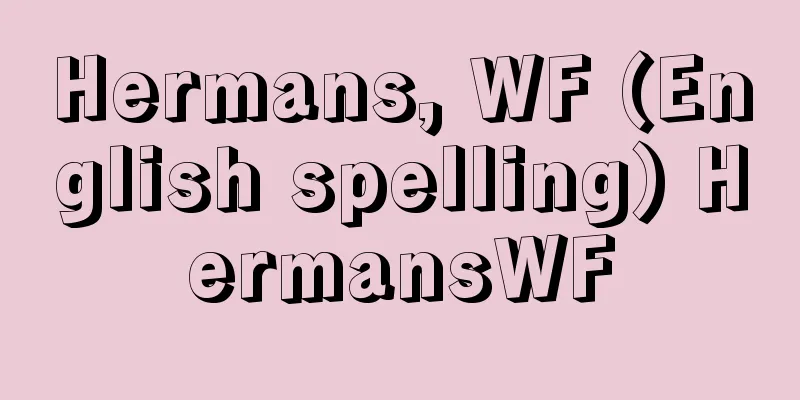Smocking - Smocking (English spelling)

|
It is a technique that uses European embroidery techniques to fix the pleats of fabric that have been sewn and gathered, and has elasticity. It is said to have originated in Hungary as a way to make straight-cut clothing conform to the rounded human body. After that, beautiful colors and numerous stitches were adopted in various countries, and it gradually developed into a decorative style. It is often used in the folk clothing of the Czech Republic, Slovakia, Hungary, Scotland, etc. [Kimura Mariko] Stitches usedOutline stitch (single, double), cable stitch (single, double), diamond stitch (mountain stitch), honeycomb stitch, chain stitch, feather stitch, wave stitch, Van Dyke stitch, etc. [Kimura Mariko] FabricSince the fabric will be sewn and pleated, choose a fabric that is as soft as possible. Commonly used fabrics are thin plain cotton (lawn), linen, cotton, synthetic fibers, chiffon/velvet, thin wool, cashmere, muslin, and georgette. Plain fabrics are often used, but patterns that are easy to mark, such as plaid, vertical stripes, and polka dots (all in large and small sizes), as well as fabrics with regular weaves, single-stitch rib knit fabrics, and rib knit fabrics with one stitch on the front and two stitches on the back, are also available. [Kimura Mariko] ApplicationsWomen's and children's clothing, bags, aprons, interior decorations, curtains, cushions, piano hangings, etc. The patterns are mostly geometric, but they are beautiful when embroidered with small floral patterns. In recent years, they have also been used for knitted fabrics. There is also a technique for reverse smocks. [Kimura Mariko] Source: Shogakukan Encyclopedia Nipponica About Encyclopedia Nipponica Information | Legend |
|
縫い縮めてひだ寄せをした布地のひだを固定させるために、欧風刺しゅうの技法を使ってかがる手法で、伸縮性がある。もともと、直線裁ちの着衣を、丸みのある人体になじませるためのくふうで、ハンガリーにおこったといわれる。その後、さまざまな国で、美しい色彩や数多くのステッチが取り入れられ、しだいに装飾的に発展した。チェコ、スロバキア、ハンガリー、スコットランドなどの民族服に多く使われている。 [木村鞠子] 使われるステッチアウトラインステッチ(シングル、ダブル)、ケーブルステッチ(シングル、ダブル)、ダイヤモンドステッチ(山型)、ハネコムステッチ、チェーンステッチ、フェザーステッチ、ウェーブステッチ、バンダイクステッチなど。 [木村鞠子] 布地布に縫いひだを寄せるので、なるべく柔らかい布地を選ぶ。一般に使われる生地(きじ)は、薄平木綿(ローン)、麻、綿、化合繊、シフォン・ベルベット、薄いウール地、カシミヤ、モスリン、ジョーゼット。無地を使うことが多いが、印のつけやすい、格子柄(こうしがら)、縦縞(たてじま)、水玉(いずれも大から小まで)、また織り目が規則正しい変り織になった布、編み地の一目ゴム編や、一目表目・二目裏目のゴム編み地など。 [木村鞠子] 用途婦人・子供服、袋物、エプロン、室内装飾、カーテン、クッション、ピアノ掛けなど。模様は幾何学的なものが主になるが、小花模様などの刺しゅうを加えると美しい。近年は編み地にも使われている。また裏スモックの手法もある。 [木村鞠子] 出典 小学館 日本大百科全書(ニッポニカ)日本大百科全書(ニッポニカ)について 情報 | 凡例 |
>>: Innokentii Mikhailovich Smoktunovskii
Recommend
International Union of Revolutionary Writers
...An international organization for proletarian ...
Koshi Night Talk - Kashiyawa
This is a collection of essays by Matsuura Kiyosh...
Parish tax - kyokuzei
…In the center of a parish, that is, in the cente...
Golikov, AP (English spelling) GolikovAP
…Soviet children's author. Real name: Golikov...
Li Yang-bing (English spelling)
A calligrapher from the Tang Dynasty in China. Bor...
Hydrogenation - Suisotenka (English spelling) hydrogenation
A type of reduction reaction in which hydrogen is ...
Stoat - okojo (English spelling)
It is an animal of the Mustelidae family in the C...
Thick rice cake soup - Noppeijiru
It is also called "Nuppei" and written a...
Graptopetalum
… [associated species] There are 40 species of Du...
Ougo - Ougo
Year of death: October 1, 1608 (November 8, 1608) ...
San Francisco Bay - San Francisco Bay
A bay in central California, USA. It is 80 km long...
Cuirass - Cuirass
…It is also called red clay. Depending on the deg...
Ansar (English spelling)
...A wide range of people participated in the reb...
Stateville
…Bentham's panopticon was conceived as the mo...
Sore - Grass
〘Noun〙① A disease such as eczema that develops on ...

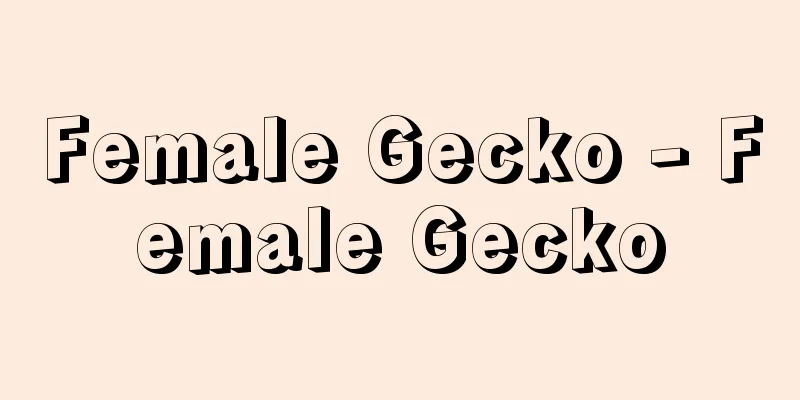
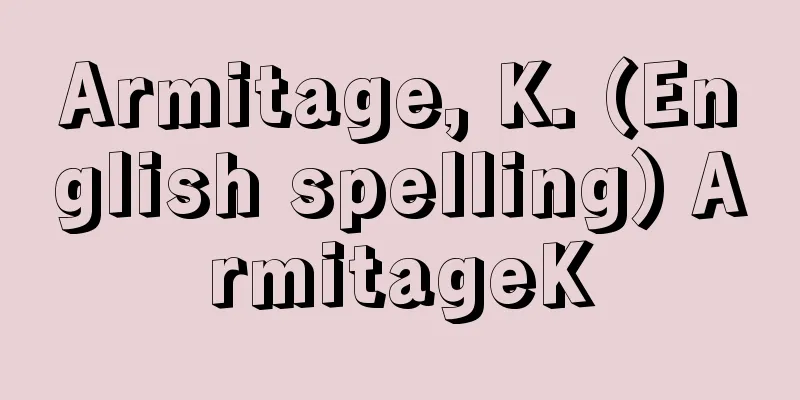

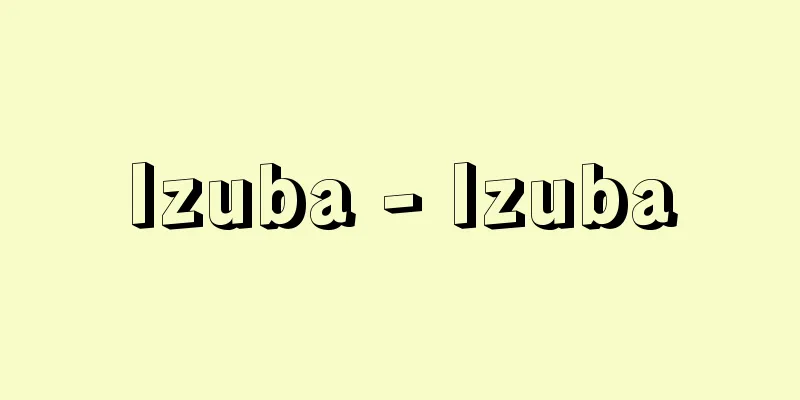
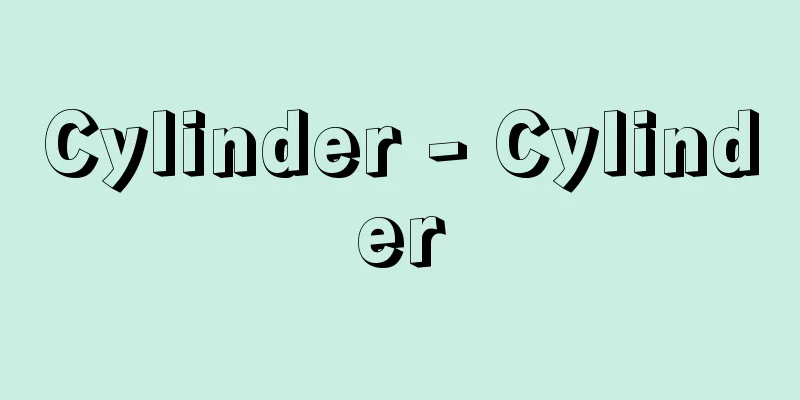
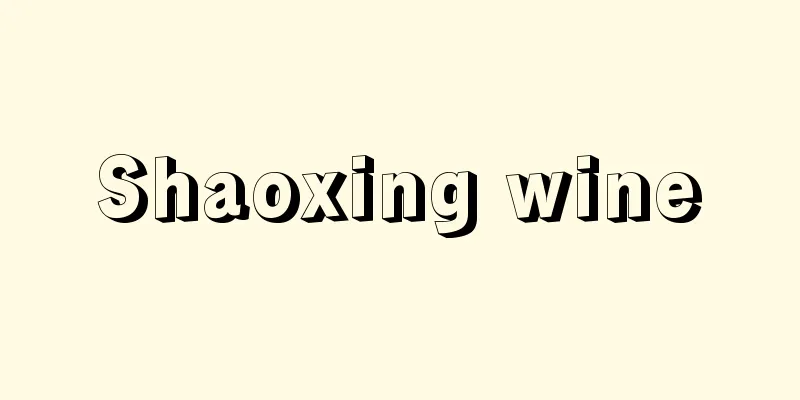
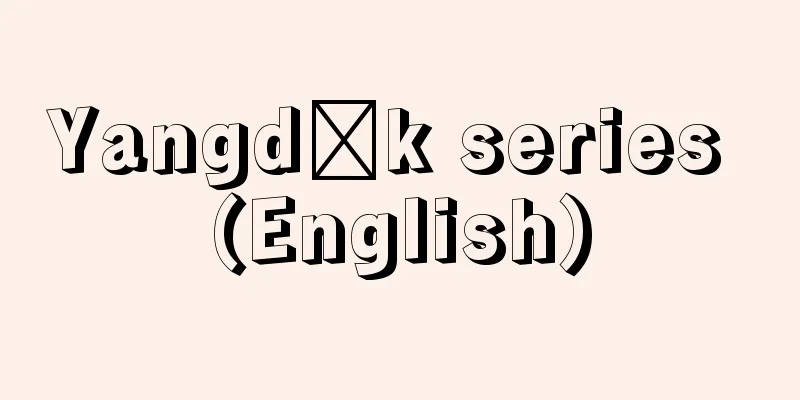
![Imada [town] - Konda](/upload/images/67cba1636de85.webp)
